“Scientific knowledge is a body of statements of varying degrees of certainty — some most unsure, some nearly sure, but none absolutely certain.”
- Richard Feynman
On March 11th, 2020, the WHO's Director-General, Dr. Tedros Adhanom Ghebreyesus, announced to the world that the novel “coronavirus” had been rapidly spreading across the world causing death and destruction in its wake, thus necessitating the unprecedented use of the “pandemic” label. Below are his opening remarks where the alarm bell was rung:
“Good afternoon.
In the past two weeks, the number of cases of COVID-19 outside China has increased 13-fold, and the number of affected countries has tripled.
There are now more than 118,000 cases in 114 countries, and 4,291 people have lost their lives.
Thousands more are fighting for their lives in hospitals.
In the days and weeks ahead, we expect to see the number of cases, the number of deaths, and the number of affected countries climb even higher.
WHO has been assessing this outbreak around the clock and we are deeply concerned both by the alarming levels of spread and severity, and by the alarming levels of inaction.
We have therefore made the assessment that COVID-19 can be characterized as a pandemic.
Pandemic is not a word to use lightly or carelessly. It is a word that, if misused, can cause unreasonable fear, or unjustified acceptance that the fight is over, leading to unnecessary suffering and death.
Describing the situation as a pandemic does not change WHO’s assessment of the threat posed by this virus. It doesn’t change what WHO is doing, and it doesn’t change what countries should do.
We have never before seen a pandemic sparked by a coronavirus. This is the first pandemic caused by a coronavirus.
And we have never before seen a pandemic that can be controlled, at the same time.
WHO has been in full response mode since we were notified of the first cases.
And we have called every day for countries to take urgent and aggressive action.
We have rung the alarm bell loud and clear.”
Dr. Tedros Adhanom Ghebreyesus warned that if the “pandemic” label is misused, it can “cause unreasonable fear…leading to unnecessary suffering and death.” Thus, he was not using this designation lightly. That same day, Anthony Fauci testified before Congress, predicting that the “Covid” cases would only get worse within the US until more testing could occur:
Infectious Diseases Head Warns Coronavirus Outbreak Will Get Worse
“National Institute of Allergy and Infectious Diseases Dr. Anthony Fauci in testimony before the House Oversight and Reform Committee warns lawmakers that the coronavirus outbreak is going to worsen until the country can get a handle on the number of people who have contracted the virus. He said individual testing is being done, but that it will be important to do what he calls "surveillance" conduct testing in communities. He says that currently six cities are already conducting these tests and that more cities and towns will follow suit.”
https://www.google.com/amp/s/www.c-span.org/amp/video/%3fc4860453
Two days later, President Donald Trump enacted the national emergency declaration in the US based upon the “spread” of this novel “virus:”
Proclamation on Declaring a National Emergency Concerning the Novel Coronavirus Disease (COVID-19) Outbreak
“In December 2019, a novel (new) coronavirus known as SARS-CoV-2 (“the virus”) was first detected in Wuhan, Hubei Province, People’s Republic of China, causing outbreaks of the coronavirus disease COVID-19 that has now spread globally. The Secretary of Health and Human Services (HHS) declared a public health emergency on January 31, 2020, under section 319 of the Public Health Service Act (42 U.S.C. 247d), in response to COVID-19.”
“The spread of COVID-19 within our Nation’s communities threatens to strain our Nation’s healthcare systems. As of March 12, 2020, 1,645 people from 47 States have been infected with the virus that causes COVID-19. It is incumbent on hospitals and medical facilities throughout the country to assess their preparedness posture and be prepared to surge capacity and capability. Additional measures, however, are needed to successfully contain and combat the virus in the United States.
NOW, THEREFORE, I, DONALD J. TRUMP, President of the United States, by the authority vested in me by the Constitution and the laws of the United States of America, including sections 201 and 301 of the National Emergencies Act (50 U.S.C. 1601 et seq.) and consistent with section 1135 of the Social Security Act (SSA), as amended (42 U.S.C. 1320b-5), do hereby find and proclaim that the COVID-19 outbreak in the United States constitutes a national emergency, beginning March 1, 2020.”
Based upon the WHO's “pandemic” declaration, Fauci's own Congressional testimony, and President Trump's national health emergency enactment, the scientific evidence for a novel “coronavirus” running around causing death and destruction must have been very compelling. This scientific evidence must have been iron-clad for these coordinated warnings to the public of this uncontrollable threat. This scientific evidence must have been overwhelming and irrefutable proof that convincingly established that a new “coronavirus” was the cause of a new disease, thus necessitating the harsh restrictions that followed.
If you thought that this novel “virus” and the ensuing pandemic were scientifically proven to be true, then you are wrong. According to the leading experts in science, there is no such thing as scientific proof. In fact, it is said that science can not prove anything. At most, it can provide the best explanation at a given time until it is either falsified or better evidence comes along that alters the explanation. Thus, if you thought that theories such as evolution, Big Bang, gravity, and even germ theory are scientifically proven, you'd be incorrect. Well, unless you are The New York Times and you are promoting the “science” of climate change. Then you can claim scientific proof without consequence it seems.
Let's examine this idea that science can not prove anything and see if it truly holds up. Let's see if the people who promoted this pandemic also believe that there is no such thing as scientific proof when they speak on the origins of this “virus” as well as the safety and efficacy of the treatments related to it. Is it true that science can not prove anything, or is this a clever way for those running the “science” show to make positive claims while having a place to fall back to if the evidence were to come tumbling down around them?
To examine this issue as accurately and correctly as possible, let's start off by defining what we mean when discussing proof. According to Merriam-Webster, proof is defined as “the cogency (i.e. the quality of being clear, logical, and convincing) of evidence that compels acceptance by the mind of a truth or a fact.” Looking to the Cambridge dictionary, we see proof defined as “a fact or piece of information that shows that something exists or is true.” The Encyclopedia Britannica concurs by stating that proof is “something which shows that something else is true or correct.” Thus, we can see that proof is evidence that leads one to conclude whether something exists and/or that it is true or a fact. If the evidence demonstrates something to be true, it is considered to have been proven.
When speaking of natural science, a key component is the ability to prove what one claims. Being able to do so constitutes good science and distinguishes it from bad science, i.e. pseudoscience. The ability to prove a claim requires adherence to the scientific method as well as being able to repeatedly get the same results during experimentation. It is through this method that knowledge can be gained regarding the natural world:
The Natural Sciences
“The natural sciences aim to acquire knowledge about the natural world. The scientific method is a key feature of what makes the natural sciences so scientific. The underlying methodology that binds all disciplines within the natural sciences together is so important that we may even use it to distinguish "real" or "good" science from "bad" science and even pseudo-science. Within this method, evidence and justification play a very important role. Each discipline within the natural sciences aims to produce knowledge about different aspects of the natural world. In this sense, each discipline within the natural sciences will tweak its methodology somewhat to fit its particular purpose and scope. Nevertheless, all disciplines within the natural sciences will broadly have a shared underlying scope, methodology and purpose.
At this point in time, we tend to place much trust in the natural sciences. "Scientific proof" has almost become some sort of guarantee of the quality or veracity of knowledge.”
“One of the key features of the natural sciences is the necessity of being able to prove what you claim. Good science does not only require proof. It also actively invites peer-review and even falsification. For example, if your teacher claims that starch will turn blue when mixed with iodine, you will want to test this yourself. Within the natural sciences, you should be able to repeat experiments to see if a hypothesis is correct.”
http://www.tok2022.net/natural-sciences.html
In natural science, evidence is collected based upon experiments that are conducted in order to test a hypothesis. The hypothesis is an explanation proposed for an observed natural phenomenon. It is written as an “if, then” statement and reflects a tentative cause-and-effect relationship that is to be tested through experimentation. The evidence collected is used to either prove or disprove the hypothesis. If the hypothesis is proven correct by investigation, the scientific evidence will lead to a scientific theory, which is considered a proved set of principles that explain the observed phenomena:
The Scientific Method: A Need for Something Better?
“The scientific method is better thought of as a set of “methods” or different techniques used to prove or disprove 1 or more hypotheses. A hypothesis is a proposed explanation for observed phenomena. These phenomena are, in general, empirical—that is, they are gathered by observation and/or experimentation. “Hypothesis” is a term often confused with “theory.” A theory is the end result of a previously tested hypothesis, meaning a proved set of principles that explain observed phenomena. Thus, a hypothesis is sometimes called a “working hypothesis,” to avoid this confusion. A working hypothesis needs to be proved or disproved by investigation.”
https://www.ncbi.nlm.nih.gov/pmc/articles/PMC7965632/
According to Live Science, scientific theories can be proven or rejected, just like hypotheses. Going back to the Encyclopedia Britannica for a moment, it states that the scientific hypothesis will either be accepted as true or rejected as false based upon the scientific evidence that is gathered.
“Depending on the results of scientific evaluation, a hypothesis typically is either rejected as false or accepted as true.”
Thus, if proof is defined as evidence required to help one determine truth or a fact, science can prove the hypothesis as true with the scientific evidence gathered from experimentation.
However, there is an important caveat that is highlighted by the Britannica as well. As a scientific hypothesis must be falsifiable, this means that it must have the ability to be disproven. Ultimately, science always leaves the door open for someone to come along and overturn the apple cart. Oddly enough, it is stated that, in other instances, scientists will fold new evidence into the old hypothesis in order to adapt and make it fit. This means that the hypothesis is never incorrect, but always remains incomplete, which actually goes against the premise of falsifiability and is a hallmark of pseudoscience:
However, because a hypothesis inherently is falsifiable, even hypotheses supported by scientific evidence and accepted as true are susceptible to rejection later, when new evidence has become available. In some instances, rather than rejecting a hypothesis because it has been falsified by new evidence, scientists simply adapt the existing idea to accommodate the new information. In this sense a hypothesis is never incorrect but only incomplete.”
https://www.britannica.com/science/scientific-hypothesis
Regardless, as the hypothesis can be proven true or untrue, this means that science can prove the cause-and-effect relationships proposed by the hypothesis based upon the outcome of the experiments. For example, one can determine that heating water will cause the water to boil. This is a simple exercise anyone can do solely by adding water to a heat source. The heat, i.e. temperature (the independent variable), can be varied and manipulated in order to make the water boil (dependent variable) faster or slower depending on the temperature. This simple experiment can be repeated regularly with predictable results. This relationship between the temperature and its effects on water can be explored in reverse by manipulating the temperature in order to make it colder so that the water freezes. It is a cause-and-effect relationship that most would argue has been proven scientifically.
However, there are those who would say that such a scenario is not scientifically proven. This view is that, in science, there is always the possibility that any accepted hypothesis could be disproven someday. In other words, the hypothesis may be true today, but that does not mean that it will be true tomorrow, and nothing can be proven 100% correct all of the time. Thus, in science, nothing can be determined with 100% absolute certainty and there must always remain doubt. As there is doubt, there is no proof. As there is no proof, science can not definitively prove anything.
Such an argument was recently made by astrophysicist Ethan Siegel in a 2017 article for Forbes. According to Siegel, there is no such thing as scientific proof. While he claims that scientific knowledge is the most “real” knowledge that we can possibly gain about the world, he argues that, in science, nothing is ever proven beyond a shadow of a doubt. Siegel states that all scientific theories will fail, and that the stories that last the longest are somehow better than proof. They are the best explanations that we have ever imagined:
Scientific Proof Is A Myth
“You’ve heard of our greatest scientific theories: the theory of evolution, the Big Bang theory, the theory of gravity. You’ve also heard of the concept of a proof, and the claims that certain pieces of evidence prove the validities of these theories. Fossils, genetic inheritance, and DNA prove the theory of evolution. The Hubble expansion of the Universe, the evolution of stars, galaxies, and heavy elements, and the existence of the cosmic microwave background prove the Big Bang theory. And falling objects, GPS clocks, planetary motion, and the deflection of starlight prove the theory of gravity.
Except that’s a complete lie. While they provide very strong evidence for those theories, they aren’t proof. In fact, when it comes to science, proving anything is an impossibility.”
“This doesn’t mean it’s impossible to know anything at all. To the contrary, in many ways, scientific knowledge is the most “real” knowledge that we can possibly gain about the world. But in science, nothing is ever proven beyond a shadow of a doubt. As Einstein himself once said:
The scientific theorist is not to be envied. For Nature, or more precisely experiment, is an inexorable and not very friendly judge of his work. It never says “Yes” to a theory. In the most favorable cases it says “Maybe,” and in the great majority of cases simply “No.” If an experiment agrees with a theory it means for the latter “Maybe,” and if it does not agree it means “No.” Probably every theory will someday experience its “No”—most theories, soon after conception.
So don’t try to prove things; try to convince yourself. And be your own harshest critic and your own greatest skeptic. Every scientific theory will someday fail, and when it does, that will herald a new era of scientific inquiry and discovery. And of all the scientific theories we’ve ever come up with, the best ones succeed for the longest amounts of time and over the greatest ranges possible. In some sense, it’s better than a proof: it’s the most correct description of the physical world humanity has ever imagined.”
https://www.forbes.com/sites/startswithabang/2017/11/22/scientific-proof-is-a-myth/?sh=49a1332e2fb1
A month later, Forbes put out another article attempting to convince us that there is no such thing as scientific proof, only scientific evidence. As with the Siegel article, proof again equates to 100% certainty. The article rightfully points out that electrons and dark matter cannot be scientifically proven to exist. However, it gives the wrong reason, stating that it is due to the inability to have absolute certainty in order to prove their existence. The problem is that science does not deal with proving existence. It is solely about explaining naturally observed phenomena by establishing a cause-and-effect relationship. The question of existence must be determined prior to any scientific experiment taking place. The author wants you to believe that proof can only exist when there is no doubt. As there is no proof, only scientific evidence stands which, even then, can never be 100% certain. This evidence could someday be considered false. Thus, science is about piling up lots and lots of evidence, bringing about greater weight to the hypothesis and/or theory, until somebody disproves a critical piece from the bottom of the pile and the entire scientific knowledge comes crashing down:
There's No Such Thing As Proof In The Scientific World - There's Only Evidence
“Proof” implies that there is no room for error — that you can be 100% sure that what you have written down on the piece of paper is 100% representative of what you are talking about.
And quite simply, that doesn’t exist in the real world.
I cannot prove to you that electrons exist.
No number of scientists in the world can ever prove that the stars are far away, or that the Higg’s Boson exists — or even that the Earth is round (but shh, don’t tell the Flat Earthers that!)
Nobody can prove that things will always fall down when you drop them.
Nobody can prove that energy is conserved.
Nobody can prove that dark matter exists.
Nobody can prove that quantum physics is real.
Because that’s not what science is about.
Proof can only exist when there is no doubt, and there is always doubt. You could be a brain in a vat, living in a crazy simulation. You could be hallucinating everything.
You cannot prove anything.”
“You can gather evidence.
That evidence will never be 100% — there’s always the chance that everything you think you know turns out to be false — but the evidence allows you to make current-best-evidence-guesses (for want of a better term) about the behavior of the universe.
We can build up piles and piles of evidence for ideas.
When the pile reaches a certain height, it behoves us to begin to take it rather seriously.
That is, until someone removes a critical piece from the bottom of the pile, and the entire edifice comes crashing down.”
From the two Forbes articles, it would seem that science boils down to creating the best possible story to fit the evidence until someone comes along with an even better story. It treats the idea of proof as something that must be absolute, and science as a field without the ability to come to any definitive conclusions. This idea that science cannot prove anything was discussed in a third article in Futurism. However, the author did argue that scientists can be confident in their conclusions. Scientists can even be confident beyond a reasonable doubt, especially if there is a preponderance of evidence. However, even with this confidence beyond a reasonable doubt leading to absolute confidence, it is argued that scientists can never be absolutely certain nor be fully beyond any doubt:
Can Science Prove Anything?
“It isn’t that we can’t ever come to a conclusion. We can. It also isn’t that we can’t ever be confident about our conclusions. We definitely can. In fact, we can be confident far beyond any reasonable doubt (if our conclusions are supported by a preponderance of evidence). However, and this is the central point that I am trying to make, we can never be fully beyond any doubt. We can be confident - incredibly, absolutely, positively confident - just never certain. This is the humbling and mysterious liminal dwelling place of all scientists.”
https://futurism.com/can-science-prove-anything-2
This obviously leads to the question of whether the evidence must be considered absolute in order for something to be proven one way or the other. This is not the case if we are going by the legal standards of what constitutes proof. In a court of law, a case is proven when it reaches the threshold of being proven beyond any reasonable doubt. Meeting this criterion does not mean that there must be absolute certainty. In fact, absolute certainty is rarely attainable in any legal case. Thus, the judge and jury only need to be convinced that the evidence proves or disproves the case based on common sense stemming from what the evidence shows:
Understand proof beyond a reasonable doubt
“Proof beyond a reasonable doubt means proof that is close to an absolute certainty. If the judge or jury is sure you committed the crime based on the evidence, that is enough. They have been satisfied beyond a reasonable doubt that you're guilty.
A reasonable doubt is based on common sense. If the judge or jury has any doubt and is not certain that you're guilty after looking at the evidence, you must be acquitted.”
https://stepstojustice.ca/steps/criminal-law/3-understand-proof-beyond-reasonable-doubt/
According to a 1992 paper by Lee Lovinger, an American jurist, lawyer, and the former Commissioner of the Federal Communications Commission of the United States, both science and law deal with proofs. He argued that proof of facts in all discipline’s rests upon subjective judgments of probability, and that the sufficiency of evidence or data to support a conclusion or proposition is what we call "proof.” Thus, using evidence to determine proof was a basic tenet of both fields:
Standards of Proof in Science and Law
“Ascertainment of facts is basic to both science and law, and in both disciplines it rests upon proof. In this context, proof is a quantum and quality of evidence or data sufficient to support a conclusion. But criteria for determining what evidence or data are adequate have taken centuries to develop and are still elusive. Science uses quantitative criteria subject to statistical analysis. Law uses categorical criteria that are described verbally. Analytically, both processes rest upon subjective judgments or assumptions. Science, because of the nature of the questions it addresses, has an empirical or pragmatic model of validation that other disciplines lack; but ultimately proof of facts in all disciplines rests upon subjective judgments of probability. The ascertainment of facts lies at the heart of both science and law. But no discipline, nor any human process, enables the human mind simply to apprehend raw facts.¹ Lawyers gather data, which they call "evidence"; scientists gather evidence, which they call "data." Both terms mean the same thing, which is intellectual support for some conclusion or proposition. The sufficiency of evidence or data to support a conclusion or proposition is what we call "proof."² Thus, determination of the quantum and quality of evidence or data that amounts to proof is basic to both disciplines.”
https://www.jstor.org/stable/29762257
In his 2016 book Argument evaluation and evidence, Douglas N. Walton, a Canadian academic and author, known for his books and papers on argumentation, logical fallacies and informal logic, wrote that in order for something to be knowledge, it must pass a level where it is beyond accepted as true based upon the evidence acquired. This knowledge must be proven by a certain kind of evidence, and it must be such a high standard in science that the accepted truth will not later be retracted:
“To say that something is knowledge, it is important that the proposition claimed as knowledge be based on evidence of a kind that reaches a level where the proposition passes beyond the level of being accepted as true because it is based on evidence. Only when it is proved by a certain kind of evidence, that is sufficient for the discipline, or more generally the context in which the proposition was claimed, can something be properly said to be knowledge. The standard has to be high enough in a scientific inquiry to minimize the possibility that the proposition accepted as true will later have to be retracted.”
Walton, Douglas N. (2016). Argument evaluation and evidence. Law, governance and technology series. Vol. 23. Cham; New York: Springer-Verlag. p. 224. doi:10.1007/978-3-319-19626-8. ISBN 9783319196268. OCLC 919080389.
According to criminal defense attorney Ralph Behr, scientific evidence is the result of scientific tests which are used to prove or disprove a theory or hypothesis. In criminal cases, this scientific evidence is used to help jurors understand and determine the facts of a case. In 1993, a landmark case set up the responsibility for judges and lawyers to “prove up” the scientific evidence before a jury hears it. In other words, the judge gets to decide if a scientific opinion is of proven merit and ensure that it is reliable and relevant. Importantly, this evidence must be derived from the scientific method:
Scientific Evidence in Criminal Cases
The 1993 landmark case, Daubert v. Merrell Dow Pharmaceuticals, forever changed trials with regard to expert witness testimony because it set up the entire system of judicial review of scientific evidence and its admissibility. Daubert conferred great responsibility on judges to rule and upon lawyers to prove up scientific testimony before the jury hears any opinion on a particular piece scientific evidence. The U.S. Supreme Court held that:
Judges serve the jury system as “gatekeepers” who decide what scientific opinion evidence is of sufficient proven merit and weight to be heard by a jury.
Judges ensure that the scientific evidence is reliable and relevant to the “tasks at hand.”
The scientific evidence derives from the scientific method, which ensures the research will be objective, unbiased, and conducted in a controlled environment.
https://www.google.com/amp/s/www.ralphbehr.net/amp/scientific-evidence-in-criminal-cases.html.
Thus, we can see that there is legal precedent that scientific evidence can be considered proof. While there is the argument that science always leaves the room open for doubt and cannot offer proof due to a lack of 100% absolute certainty, in order for the evidence gained to become scientific knowledge, it must be such that it proves the hypothesis beyond a point of reasonable doubt. Proving something beyond a reasonable doubt is a standard that does not require absolute certainty. Even though no reasonable doubt remains, there is always room for a certain level of error in case new evidence emerges at a later date. As in a court of law, people have been proven guilty beyond a reasonable doubt and have later been set free in light of new evidence. However, unless that evidence emerges at some point, the convicted are still considered to have been proven guilty beyond reasonable doubt, just as a hypothesis is proven beyond a reasonable doubt unless someone can come along and falsify it with new evidence. The definition for what constitutes proof in both a legal and a scientific sense remain the same in that absolute 100% certainty is not a requirement in order to claim that something has been proven.
However, it is commonly accepted by many sources that science can not prove anything. Science can only disprove something as false. Some will say that anyone claiming otherwise is not a real scientist. This seems like a strange semantics game. If science can prove something false, it should have the ability to prove something true as well. Thus, we must ask ourselves, if science cannot prove anything true at all, why are the hypotheses and the theories established by the evidence presented to us as if they have been proven true? If we look at germ theory, we find that it is regularly regarded as a scientifically proven theory. Going back to the Encyclopedia Britannica, we find that germ theory has long been considered proven:
“Although the germ theory has long been considered proved, its full implications for medical practice were not immediately apparent; bloodstained frock coats were considered suitable operating-room attire even in the late 1870s, and surgeons operated without masks or head coverings as late as the 1890s.”
https://www.britannica.com/science/germ-theory
According to Harvard.edu, germ theory was proven by the work that came about in the late 1800s and early 1900s.
“Germ theory states that specific microscopic organisms are the cause of specific diseases. The theory was developed, proved, and popularized in Europe and North America between about 1850 and 1920.”
https://curiosity.lib.harvard.edu/contagion/feature/germ-theory
The National Institute of Health (NIH) stated that German bacteriologist Robert Koch “conclusively” (i.e. in a decisive way that has the effect of proving a case) established that specific germs could cause specific diseases:
“In the final decades of the 19th century, Koch conclusively established that a particular germ could cause a specific disease.”
https://www.ncbi.nlm.nih.gov/books/NBK24649/
Koch's very own Postulates are regularly regarded as necessary in order to prove a particular microbe causes a particular disease, as noted by virologist Vincent Racaniello:
“Koch applied these criteria to show that anthrax, a common disease of cattle, was caused by the bacterium Bacillus anthracis, and that tuberculosis in humans was caused by a different bacterial species. His postulates provided a framework for proving the role of microbes in disease.”
https://virology.ws/2010/01/22/kochs-postulates-in-the-21st-century/
These Postulates are considered guidelines to help collect the necessary scientific evidence that proves causation:
“The power of Koch's postulates as an aid to science, scientists have pointed out, comes not from their rigid application, but from their encouragement of a spirit of scientific rigor. They serve as guidelines—not absolute rules—for collecting the scientific evidence that will prove what the cause of a given disease is.”
https://www.encyclopedia.com/media/educational-magazines/kochs-postulates
Using his Postulates which served as guidelines to prove causation, the Encyclopedia Britannica notes that Koch was rewarded with fame and prestige for offering “convincing proof” that anthrax caused the disease associated with it:
“The anthrax work afforded for the first time convincing proof of the definite causal relation of a particular microorganism to a particular disease.”
“Koch, now recognized as a scientific investigator of the first rank, obtained a position in Berlin in the Imperial Health Office, where he set up a laboratory in bacteriology. With his collaborators, he devised new research methods to isolate pathogenic bacteria. Koch determined guidelines to prove that a disease is caused by a specific organism.”
https://www.britannica.com/biography/Robert-Koch
Most recently, researchers looking to establish that “SARS-COV-2” causes respiratory disease noted that they did not fulfill Koch's Postulates. According to Fan Wu et al., they did not verify (i.e. make sure or demonstrate that something is true, accurate, or justified) with animal experiments whether the genome that was obtained actually caused the disease it was associated with. In other words, the researchers outright admitted to not proving this cause-and-effect relationship:
“The association between 2019-nCoV and the disease has not been verified by animal experiments to fulfil the Koch’s postulates to establish a causative relationship between a microorganism and a disease.”
https://www.nature.com/articles/s41586-020-2012-7
According to Anthony Fauci, the evidence for the origin of “SARS-COV-2” in the wet markets of Wuhan was definitively proven:
“Obviously, we still need to keep an open mind as to how [SARS-CoV-2] evolved, but rather strong evidence suggests – if not definitively proves – the origin was from a wet market in Wuhan, and recent data about the mix of DNA from animals with the RNA of the virus makes that more compelling.”
However, Fauci later stated that he would keep on open mind on the origin of “SARS-COV-2” until he received definitive proof:
“But I want to highlight the difference between possible and probable. If you look at what’s possible, I absolutely keep an open mind until we get a definitive proof of one versus the other. However, as a scientist, I could not ignore the accumulation of evidence favoring one versus the other,” Fauci said, citing the bulk of evidence that points to a natural origin for the pandemic.”
https://www.google.com/amp/s/amp.cnn.com/cnn/2023/04/25/health/fauci-pandemic-lessons/index.html
Regarding vaccines and other treatments, Fauci regularly claims that they are proven safe and effective:
“The promotion of lies, disinformation and false conspiracy theories caused thousands of people to doubt the safety and effectiveness of proven vaccines and treatments and, thus, to suffer illnesses and deaths that could have been prevented had they accessed these medical interventions,”
https://medicine.wustl.edu/news/med-commencement-file/
“National Institute of Allergy and Infectious Diseases Director Dr. Anthony Fauci said Wednesday that he believes a coronavirus vaccine may be proven safe and effective by November or December of this year.”
“I hope that the Russians have actually, definitively proven that the vaccine is safe and effective. I seriously doubt that they’ve done that,” Fauci, 79, told Deborah Roberts of ABC News for a National Geographic event to be broadcast Thursday, CNN reported.
Fauci, 79, director of the National Institute of Allergy and Infectious Diseases and a member of the White House coronavirus task force, said having a vaccine and proving that it is safe and effective are two different things.”
https://nypost.com/2020/08/12/fauci-doubts-russia-has-proven-new-vaccine-is-safe-effective/
"[A vaccine] will likely be [available] within the first quarter of 2021, by let’s say April of 2021," he told the outlet. "But that would be predicated on the fact that all of the vaccines that are in clinical trials have proven to be safe and effective."
"We've made an estimate to have about seven hundred million doses by the end of April," he added. "But that means from all six companies that we're making investments in. That means that all six of those candidates have to have a vaccine that is proven to be safe and effective."
https://people.com/health/dr-fauci-predicts-covid-19-vaccine-by-april-2021/
We can clearly see that germ theory is considered scientifically proven by many sources and that Robert Koch's Postulates are used to prove a cause-and-effect relationship between a microbe and symptoms of a disease. Even the man who considers himself “the science” seems to believe that science can actually prove things, at least in regard to the natural origin of “SARS-COV-2” as well as the effectiveness of vaccines and other treatments. Thus, this leaves us at a bit of a crossroads. Should the requirement of 100% absolute certainty be applied to what would be considered scientific proof, or is establishing proof beyond a reasonable doubt the logical standard to uphold? I would argue that there are things that science can prove with 100% certainty, as noted in the boiling water example from before. This is an established cause-and-effect relationship that will not change. There are things that science may not be able to prove with 100% absolute certainty, but it can, in many cases, establish proof beyond a reasonable doubt. There are some things that science may not be able to prove at all. However, the strength of this proof, and whether or not it can be considered scientific proof, depends upon whether or not the evidence gathered was properly derived by adherence to the scientific method.
Many of the examples presented as topics that science can not prove, such as Big Bang, evolution, dark matter, Higgs-Boson, etc., are in fact pseudoscientific concepts masquerading as being scientific. The evidence was not obtained from the steps of the scientific method, especially in regard to the first step which involves the observation of a natural phenomenon. This is seen in germ theory as well, as the evidence that has been used to prop up this theory was gathered by pseudoscientific means. This is why it is claimed that piles upon piles of evidence are necessary to be stacked on top of each other in order to strengthen the theory. Pseudoscience can never be proven right, no matter how much evidence is gathered. Having a preponderance of evidence may look impressive, but this is the lowest form of acceptable proof on the court of law totem pole. All that it takes is one person to knock a piece of critical evidence out from underneath the bottom of the pile in order for it all to come crashing down.
We are left with a scenario where science is said to prove things when it is necessary to convince the public of certain “scientific” findings, and yet, science remains unable to prove anything when it is convenient to cover up for the inability to conclusively prove pseudoscientific fraud. This is very much a having the cake and eating it too situation. This allows, for example, people like Fauci to stand up at the podium and claim that vaccines are proven safe and effective based upon “scientific” evidence gained from clinical trials when that is clearly not the case. It also allows them to have a back door to escape through as they claim that the science is always changing as it is not absolute and/or that the “virus” evolved when the vaccines are shown not to be safe and effective.
How different would this pandemic have been received by the population at large had the WHO, the CDC, Fauci, etc. came out and said that, while the evidence pointed to a new “virus” running around causing disease, they were not absolutely certain this was the case as science doesn't prove anything? What if they had said that the pathogenicity studies did not demonstrate with absolute certainty that “SARS-COV-2” caused the disease it was associated with? What if it was said that, even though the evidence pointed to a pandemic, they could not provide 100% proof that this was the case? What if they stated that, while it is believed that the vaccines are safe and effective, this was not a conclusion that they could prove scientifically? How different would the response by the public have been? If, as the “experts” tell us, science cannot even prove the cause-and-effect relationship of the assumed “viral” particles with the disease associated with it, why are we continuing to believe in the “best” unproven story humanity has ever imagined in order to try and explain disease?
determined that the infamous spike protein is fictional, just like the “virus” it supposedly belongs to. served up another glorious helping of Freedom of Information (FOI) requests showing that the scientific evidence for “viruses” does not exist. examined how the “Covid” inquiries are purposefully exploring in the wrong direction by focusing on an unproven “virus.” examined whether the “healthy” alternative products are really all that healthy after all. took on the mighty Lyme disease lie with her latest.


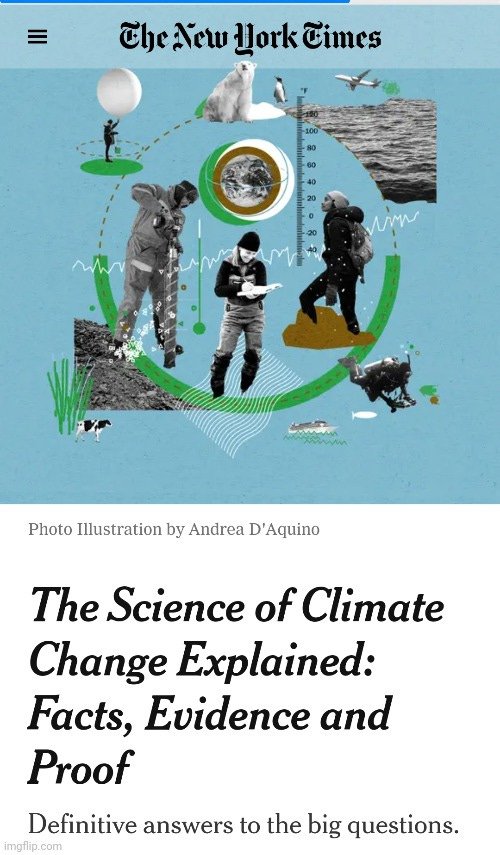
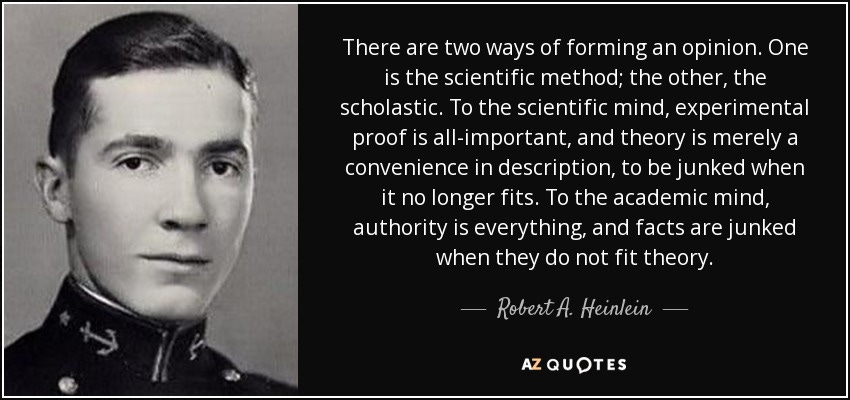
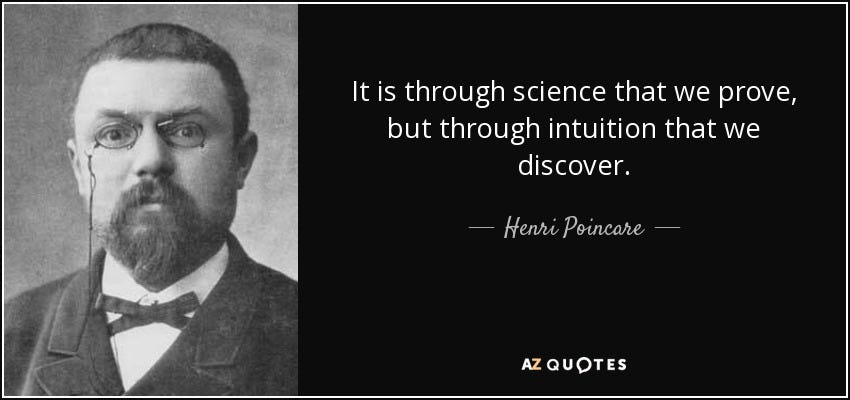

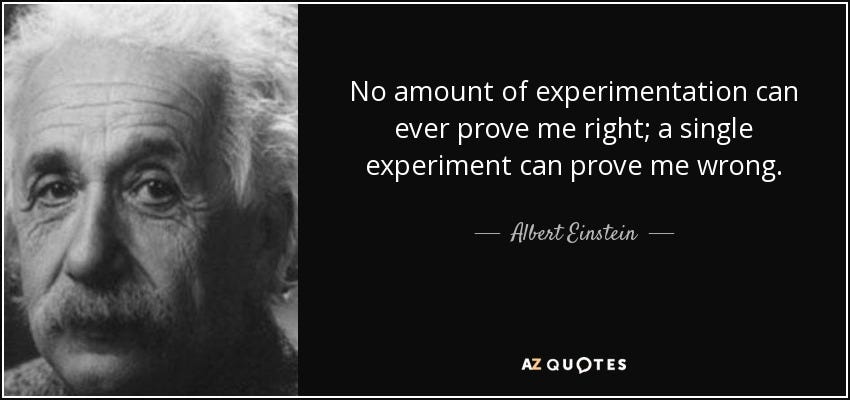
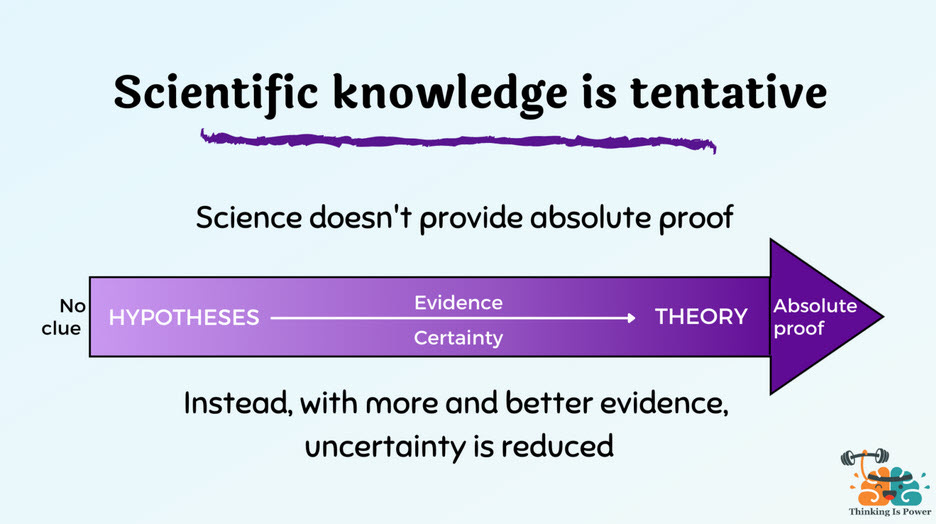
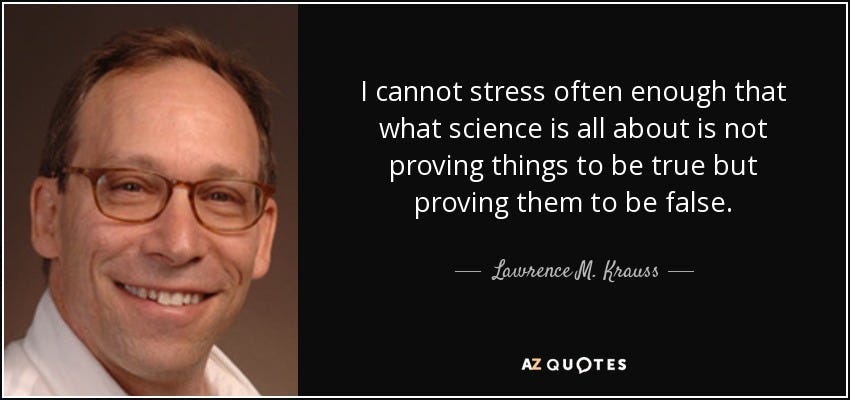
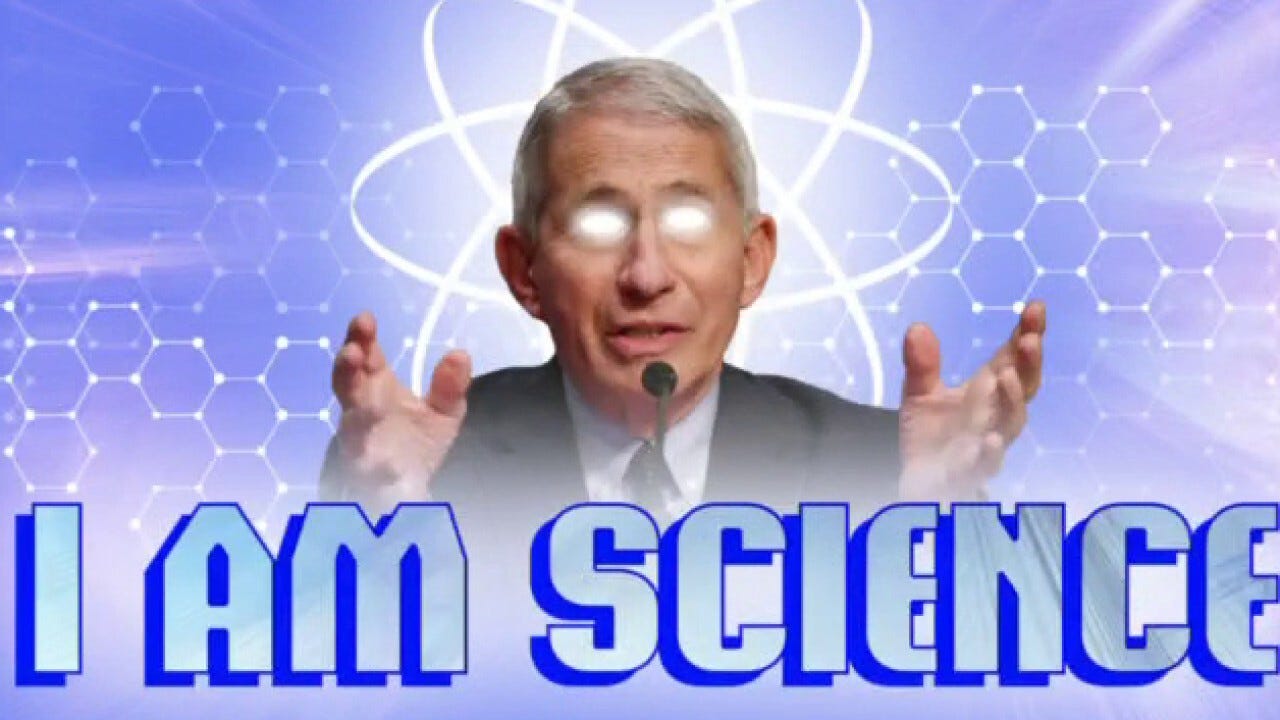
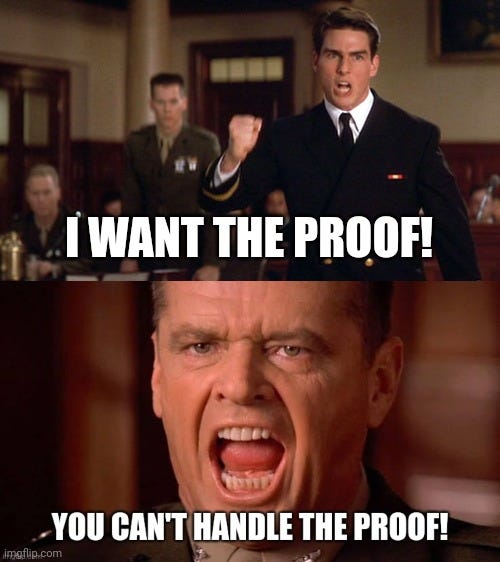
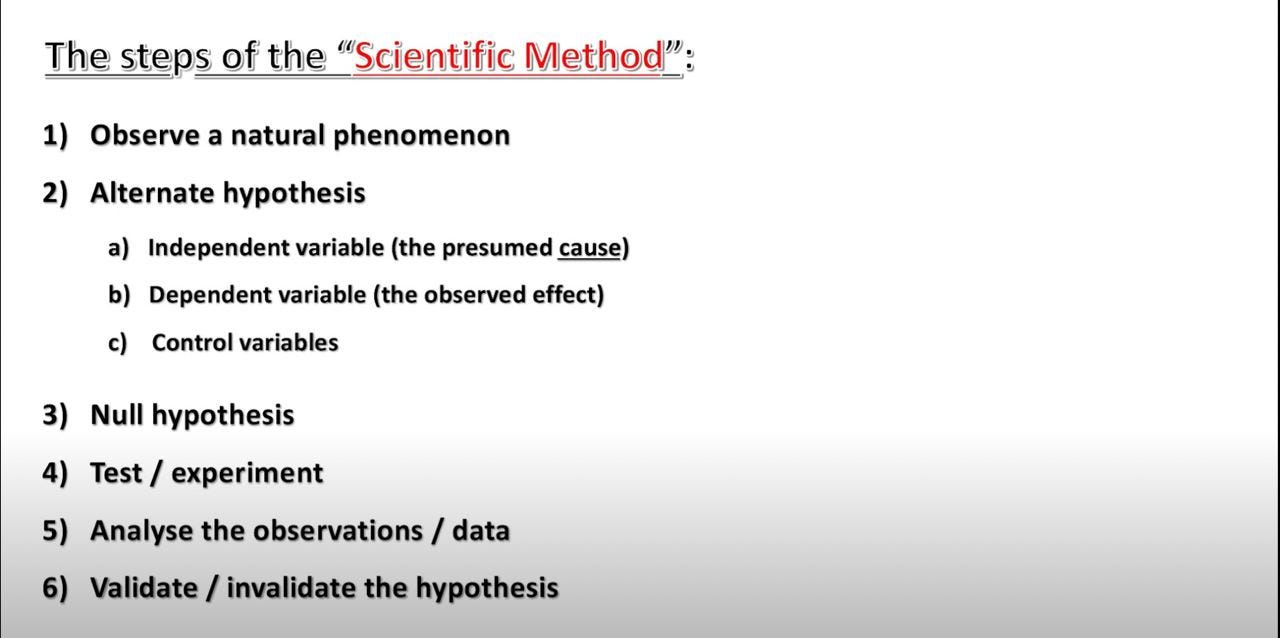





The scientific consensus is determined by those who fund scientific research i.e. the "truth" is up for sale.
I wonder what the public reaction would have been had the official voices of the plandemic been honest about the science, as you ask in your "what if" paragraph. I wonder if most of us are so indoctrinated with the ideas of pseudoscience, so used to expecting definitive answers from science, especially regarding health, that there would have been a demand for those voices to say what they actually did say, purporting the "science" in regard to SARS-CoV-2, vaccines, masks, etc., was settled and proven. Maybe I'm in that kind of mood today. I just wonder if the generations of indoctrination about viruses, vaccines, medical interventions, trust the experts, etc., would have allowed people to even hear anything different from Fauci et al. than what they said. (Not to mention, of course, that they would never have said those things, since they are perfectly aware of the non-scientific nature of their claims and have other reasons for saying them than being true to science or to common sense, meaning their purpose was manipulation and control of the public. Which is news to no one here.)